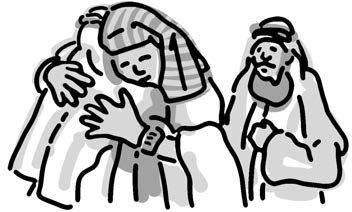My six-year-old son, Asher, approached me at home in Bangkok, Thailand.
“Mom, I want to hand out flyers to people,” he said.
After some questioning, I figured out that he wanted to distribute a small Thai-language tract called “A Love Letter From Jesus.” My heart skipped a joyful beat as I realized that my little boy wanted to share his love for Jesus. But Friday didn’t seem like a good day. The COVID-19 pandemic was keeping people indoors. In addition, I was preparing for the Sabbath.
During my devotions on Sabbath morning, I remembered Asher’s request and felt impressed to take him out with the tracts. But I didn’t.
That afternoon and evening, I watched Sabbath sermons with a friend. One preacher ended his sermon with an appeal from Ellen White: “As a people who believe in Christ’s soon coming, we have a message to bear, ‘Prepare to meet thy God’ (Amos 4:12).” The passage came from Gospel Workers, page 52. That’s exactly what I want to tell Thai people! I thought.
On Sunday morning, I opened the EGW Writings app to read that day’s scheduled devotional message. Guess what I read? A passage that included Amos 4:12: “Prepare to meet thy God.” I was cut to the heart.
At breakfast, Asher gazed at me longingly. I promised that he would hand out flyers no matter what. After he memorized Amos 4:12 in Thai, we left.
My husband, Brian, and I had to make a delivery of fresh bread from a bakery at an urban center of influence that we helped establish after arriving from the U.S. state of Washington in 2014. Usually Asher rides around on his bicycle during deliveries, but he announced that he would be too busy. “I’ll walk and hand all these out,” Asher said, referring to the tracts.
We began the one-mile (1.6-kilometer) walk to the neighbor who had ordered the bread. Asher chased down everyone he saw. “Prepare to meet thy God!” he exclaimed in Thai, extending tracts to passersby. Despite COVID-19 worries, no one could refuse the earnest boy.
He was ecstatic when we returned home two hours later. He had distributed 100 tracts. “I want to do this every day!” he declared, smiling.
God truly wants the great city of Bangkok—and the people of the other big cities of the world—to be ready. “As a people who believe in Christ’s soon coming, we have a message to bear: ‘Prepare to meet thy God.’ ”
This story illustrates a key component of the Seventh-day Adventist Church’s I Will Go strategic plan: “Increased number of church members participating in both personal and public evangelistic outreach initiatives with a goal of Total Member Involvement.” Learn more about the strategic plan at IWillGo2020.org.

